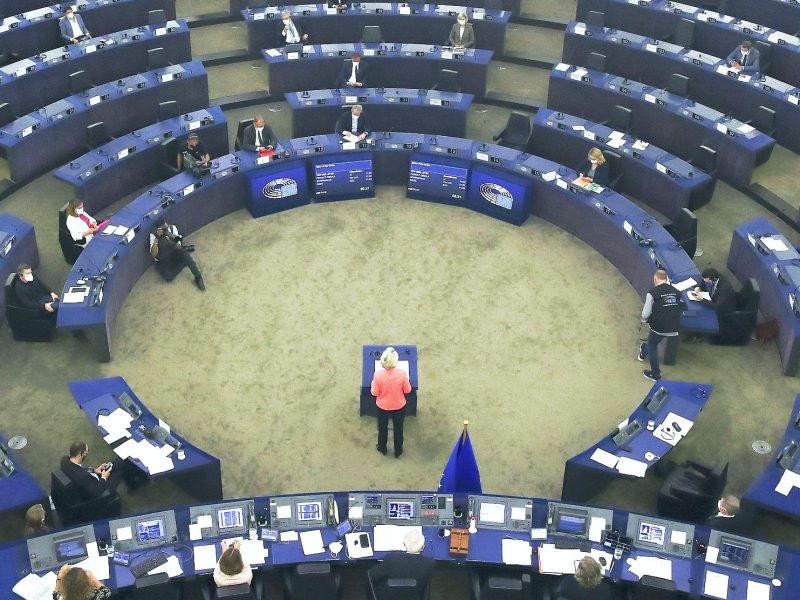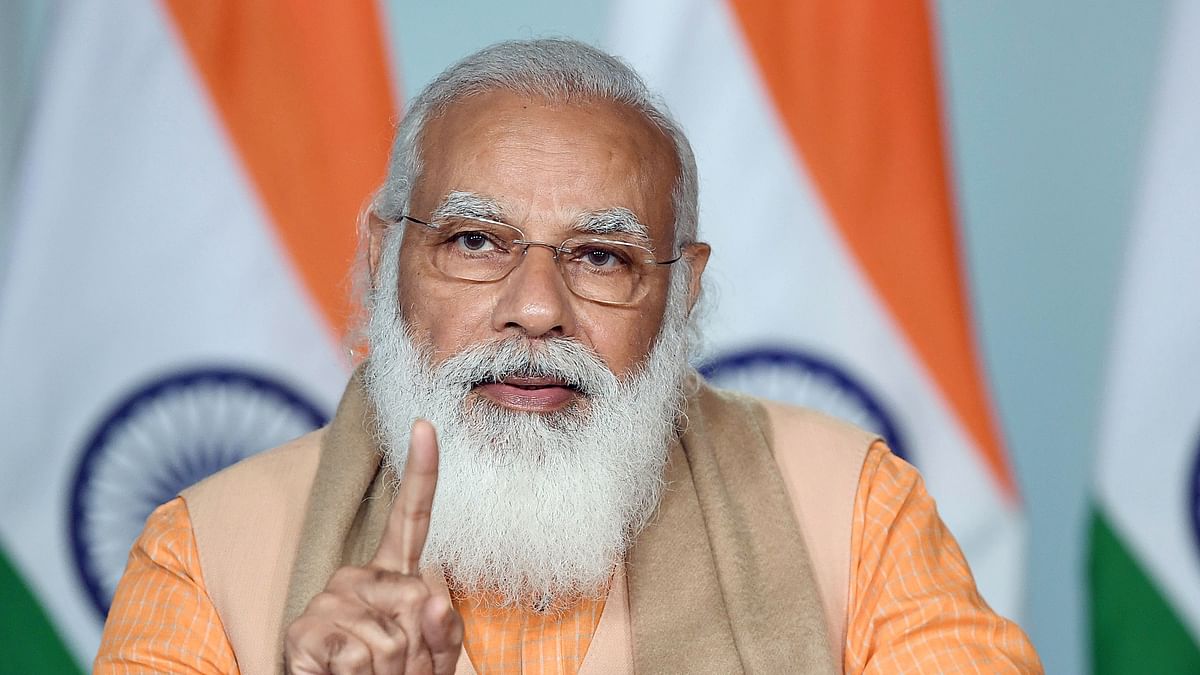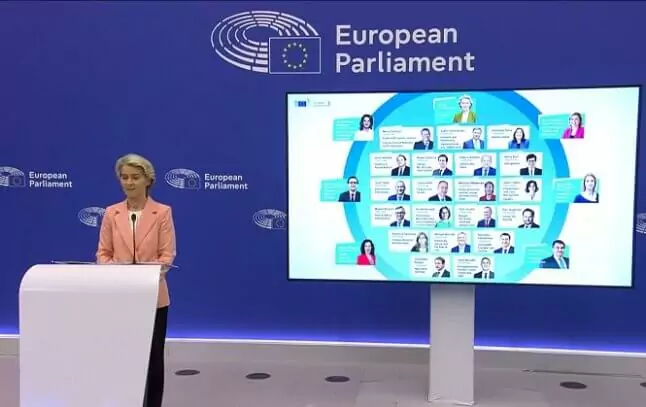Europe update: Turning inward?

This month’s European news focuses on the installation of the new European Parliament – which is more right-wing than the previous one – and the appointments to head the European institutions – notably the reappointment of Commission President Ursula von der Leyen.
A new, more right-wing European Parliament
Following the elections on June 6 and 9, a new balance has emerged in the European Parliament, favoring right-wing (EPP) and far-right parties, whose two main formations now supplant the liberals of Renew Europe and the Greens as the third and fourth largest groups in terms of number of MEPs.
However, these far-right formations remain behind the traditional EPP (188) and Social Democrats (136), who retain absolute majority of the Parliament in alliance with the Renew Europe liberals and the Greens/EFA.
In addition, the far-right is divided between the European Conservatives and Reformists (78) led by Giorgia Meloni’s Fratelli d’Italia – Atlanticist and liberal; Patriots for Europe (84) led by Jordan Bardella’s Rassemblement National – Russophile and dirigiste; and the small Europe of Sovereign Nations group (25) led by Germany’s AFD – identitarian and revisionist.
In practical terms, these groups could enable the right-wing EPP to emancipate itself from its traditional center and left allies, pushing through certain legislation classically supported by right-wing parties, notably on migration issues or the pace of the energy transition, thus enabling ad hoc majorities to be formed.
The European Parliament’s center of gravity has thus shifted to the right, which will naturally favor a sovereigntist and protectionist agenda for the European Union.
Partially renewed top jobs at the helm of Europe
In the wake of these elections, the European Council – composed of the heads of state and government of the 27 member states of the European Union – met on June 27 to renew the leadership of the European institutions, in particular the presidency of the European Council and of the European Commission.
The EPP, the big winner of the elections with 12 representatives on the European Council, proposed reappointing Ursula Von der Leyen as head of the European Commission, while also retaining the presidency of the European Parliament for the first half of the term with Roberta Metsola.
The presidency of the European Council was therefore to fall to a Social Democrat – who came second in the elections. Antonio Costa, a moderate social democrat and former Prime Minister of Portugal (2015-2023), was chosen. Kaja Kallas, former Estonian Prime Minister and a strong critic of Putin, was also nominated as the new representative for foreign policy and vice-president of the European Commission.
That left Ursula Von Der Leyen, whose appointment – along with her college of commissioners – needed European Parliament approval: emanating from the EPP and formally supported by the Parliament’s major centrist parties, she was contested to take over this role, but managed, after extensive negotiations, to secure a majority in her favor at the ballot box on July 18, 2024.
The first elements of the second UVDL Commission’s program
In her election speech, delivered just before the vote, von der Leyen aimed to find the broadest common denominator, appealing from the environmentalist left to the right, including Giorgia Meloni’s Fratelli d’Italia group, which ultimately voted against her renewal.
While giving nothing away on the Green Deal, she made no announcements aimed at a new ambition and focused on the European Union’s competitiveness policy, without announcing news loans to finance her own new industrial policy.
On the international stage, she also offered minimal positions: support for Ukraine and a call for a ceasefire in Gaza, largely ignoring the United States, Russia, China and Africa. The only novel announcement was a plan for the Mediterranean, with a dedicated European Commissioner, but the underlying theme is always to appeal to the right, since this announcement was made under the angle of immigration.
Leading up to the next European Council on October 17 and 18, 2024, the European machine will focus on its new organization. The new President will compose its new College of Commissioners, which Parliament will audition in the autumn. The administration will also be reorganized around the priorities mentioned and the creation of new commissioners, in particular for housing, enlargement, the Mediterranean and defense.
However, the upcoming American election will capture all our attention in the autumn, as the future of Ukraine, stability in the Middle East, relations with China and international trade rules hinge on its outcome. These are all crucial issues for the very future of the European project.
Marc Reverdin, Managing Director, mr@reverdin.eu
If you would like to discuss the political situation further and understand what impact it will have on the business climate and macroeconomic framework, as well as on regional and international policy, please do not hesitate to contact us
We help our clients navigate political and financial dynamics from local to global.




